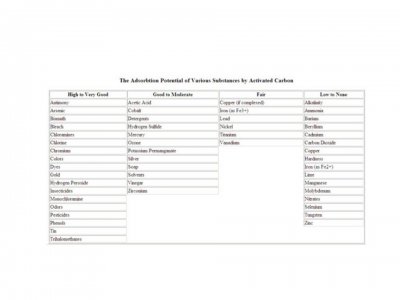- Joined
- Sep 21, 2012
- Messages
- 11,636
- Reaction score
- 1,056
I read a lot of Mixed Feelings on using Carbon in the Reef Tank.
Some people Love to use Carbon.
Others are Very Very Fearful of it and say to Never Use it.
Others say to only use it in Emergency Situations.
What I do know is that it Takes Bad Things out of the Water, but it also Takes out Good Things in the Water too.
I hear that saying a lot.
What I never hear is what exactly does it take out?
So that is my question - What Exactly does Carbon Take out of the Water? (Please tell me Both the Bad Things as well as the Good Things).
Some people Love to use Carbon.
Others are Very Very Fearful of it and say to Never Use it.
Others say to only use it in Emergency Situations.
What I do know is that it Takes Bad Things out of the Water, but it also Takes out Good Things in the Water too.
I hear that saying a lot.
What I never hear is what exactly does it take out?
So that is my question - What Exactly does Carbon Take out of the Water? (Please tell me Both the Bad Things as well as the Good Things).
Last edited:



















